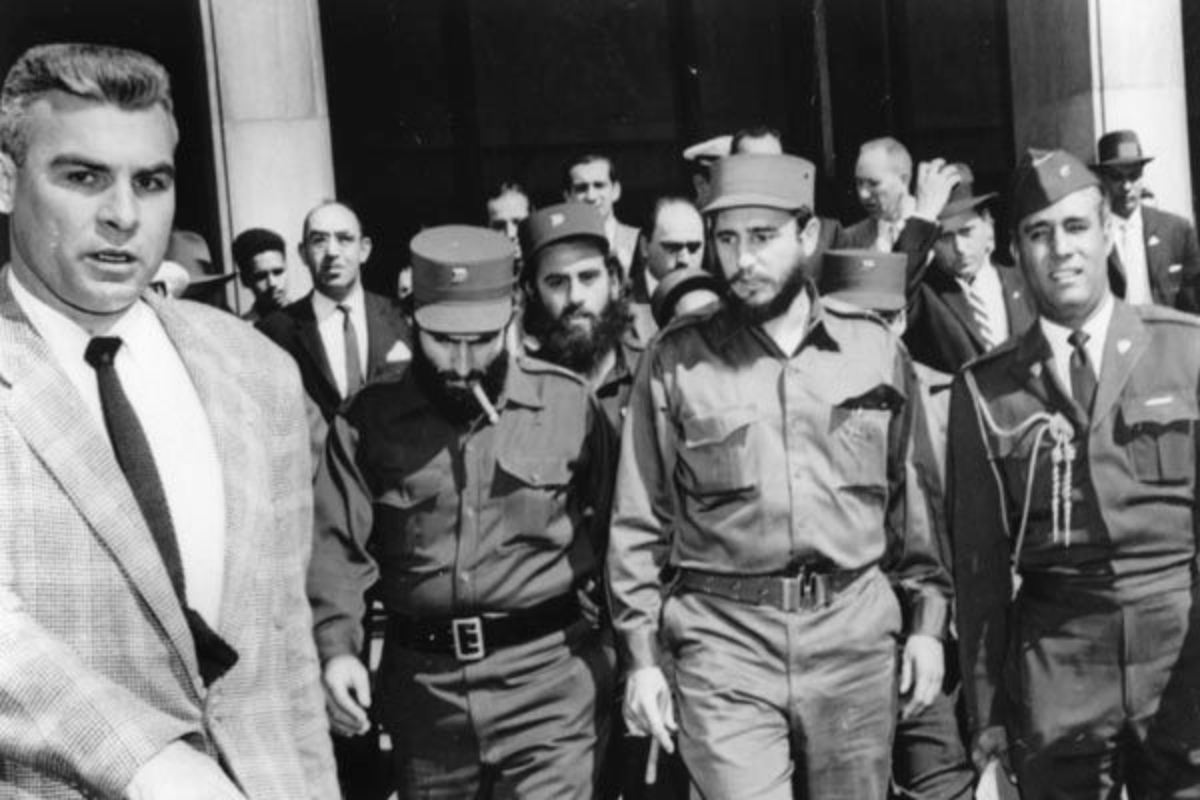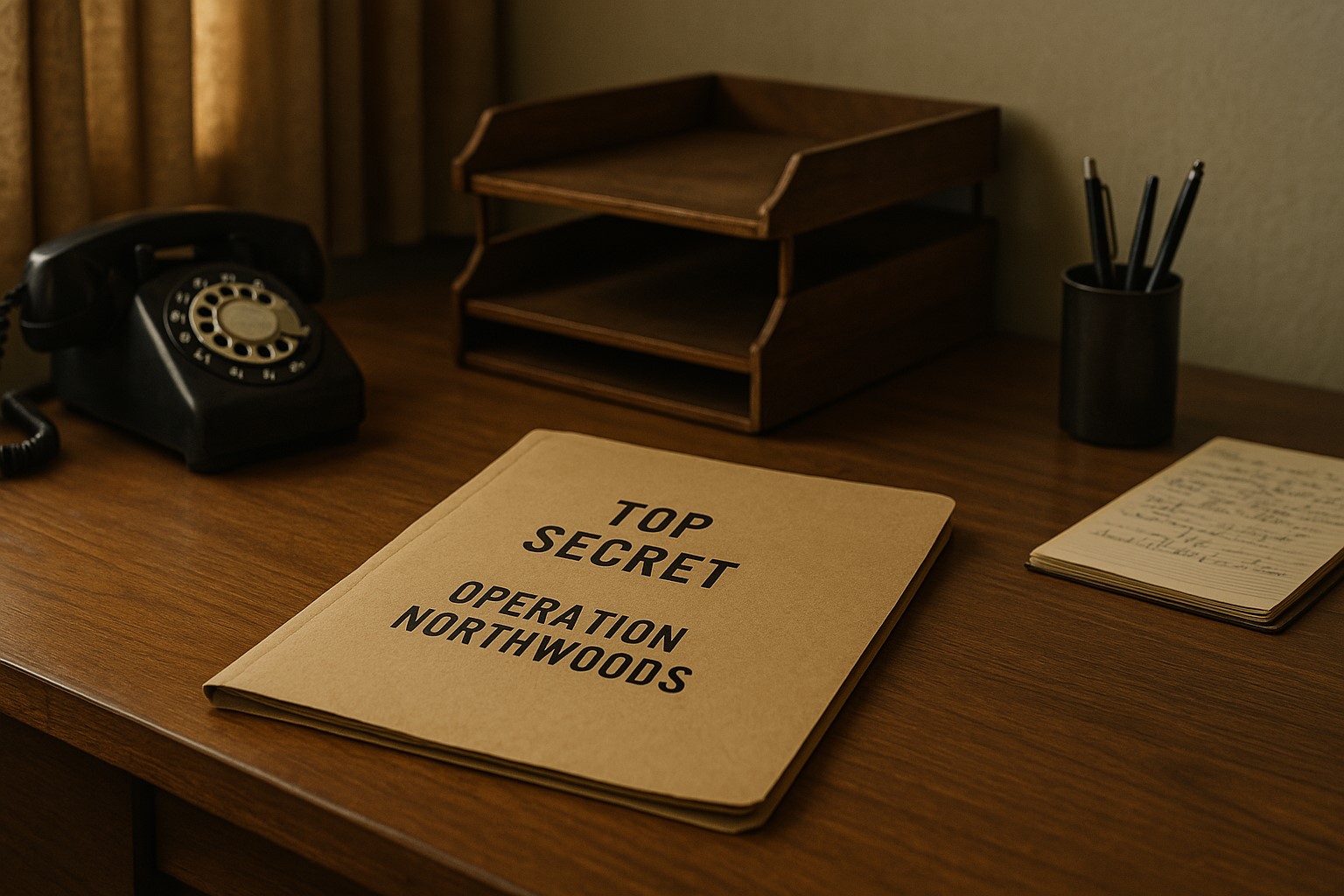In the shadowy realm of Cold War-era strategies, Operation Northwoods stands out as a startling chapter. This plan, rooted in deception and manipulation, aimed to shift the course of U.S. policy against Cuba. Yet, unlike many conspiracies, Operation Northwoods was not just a theory—it was a real proposal. Dive into the fascinating world of this audacious plan and discover its true impact.
The Cold War Context
To understand Operation Northwoods, you need to step back into the tense years of the early 1960s. During this period, the United States and the Soviet Union were locked in a fierce geopolitical struggle known as the Cold War. An important flashpoint in this struggle was Cuba, a small island nation just 90 miles from Florida.
In 1959, Fidel Castro came to power in Cuba. His government quickly aligned with the Soviet Union, sparking American fears. A communist regime so close to American shores was seen as a serious threat. In response, the U.S. empowered the CIA and the Department of Defense to come up with strategies to counteract this influence.

The Birth of Operation Northwoods
Operation Northwoods emerged from this climate of fear and urgency. Crafted by the Department of Defense and presented to the Joint Chiefs of Staff, the plan detailed a series of proposals designed to justify military action against Cuba.
On the surface, the plan seemed improbable. It involved orchestrating acts of terrorism against Americans. The idea was that these attacks could then be blamed on the Cuban government. This move was intended to galvanize public and political support for a military intervention in Cuba.
Key Proposals of the Plan
Within the declassified documents of Operation Northwoods, several startling proposals emerge. Here are a few highlights:
- Fake Attacks: The plan recommended creating the illusion of Cuban aggression by staging attacks that would mimic a Cuban assault.
- Sinking Ships: Suggestions included sinking a U.S. ship in Guantánamo Bay to stimulate anti-Cuban sentiment.
- Terror Campaigns: Another idea was the use of trained operatives to conduct acts of terrorism in American cities, leaving evidence that would implicate Cuba.
- Hijackings: The planners even considered staging false hijackings of airplanes, lending weight to claims of Cuban hostility.
The Political Arena
The specter of Operation Northwoods loomed over Washington, D.C., but it was never put into action. President John F. Kennedy, wary of such proposals, ultimately rejected the plan. His administration recognized the inherent dangers and moral quandaries in executing such a deception.
Kennedy’s decision was influenced by several factors. A key element was the recent disaster of the Bay of Pigs Invasion. This ill-fated attempt to overthrow Castro had already embarrassed the administration and strained trust with military advisors.
Kennedy’s Stance
President John F. Kennedy’s decision to reject Operation Northwoods was not made in a vacuum. It reflected a broader skepticism he harbored toward aggressive military proposals during his presidency—especially those that risked spiraling into full-scale war.
Having already experienced the political fallout from the Bay of Pigs Invasion in April 1961, Kennedy was wary of further military entanglements with Cuba. That failed operation, which involved a CIA-backed attempt to overthrow Fidel Castro using Cuban exiles, had not only embarrassed the administration but also exposed the limits of U.S. power in the region. It severely damaged trust between Kennedy and his military advisors.
When presented with Operation Northwoods in early 1962, Kennedy reportedly dismissed it outright. Though no direct quotes from Kennedy exist on the proposal itself, historical context and later reports suggest he was deeply disturbed by the idea of staging attacks on U.S. citizens and military personnel to justify war. The moral and constitutional implications were simply too far-reaching.
Moreover, Kennedy had begun favoring diplomatic and covert alternatives over direct military confrontation. His handling of the Cuban Missile Crisis later in October 1962 underscored this approach—choosing a naval blockade and backchannel diplomacy with Khrushchev over airstrikes or invasion, much to the frustration of military leaders who had pushed for stronger action.
Legacy and Impact
Operation Northwoods is a fascinating chapter in Cold War history. It highlights the lengths to which strategists were willing to go in order to combat perceived threats. It also serves as a reminder of the crucial checks and balances within the U.S. government. The fact that Operation Northwoods was never carried out is a testament to these institutional safeguards.
Lessons Learned
The discussion around Operation Northwoods provides valuable lessons for modern governance. It underscores the importance of transparency and ethical decision-making. More than just a historical curiosity, it prompts questions about the balance between security and moral obligation.
The Public’s View
Once declassified, the documents surrounding the plan offered a rare glimpse into Cold War-era thinking. Public reaction was one of shock and disbelief. The very idea that government officials could contemplate such drastic actions against their own citizens challenged perceptions of government integrity.

Modern Implications
In today’s world, where trust in government is often questioned, the story of Operation Northwoods remains relevant. It illustrates how fear can drive radical ideas, making ethical boundaries seem less significant.
Operation Northwoods also invites us to scrutinize current government actions more critically. As we look at decisions made in the name of national security, the importance of vigilance and informed citizenry is ever more apparent.
A Reminder of Power’s Potential
Power can be both a tool and a weapon. The proposals within Operation Northwoods serve as a reminder that unchecked authority can lead to dangerous paths. Contemporary societies must remain aware of the histories that shape their governance and work to prevent the repetition of past mistakes.
While Operation Northwoods was never executed, its existence challenges us to question how far governments might go under the guise of protection. It’s a stark reminder that in the quest for security, moral vigilance must remain unwavering.




